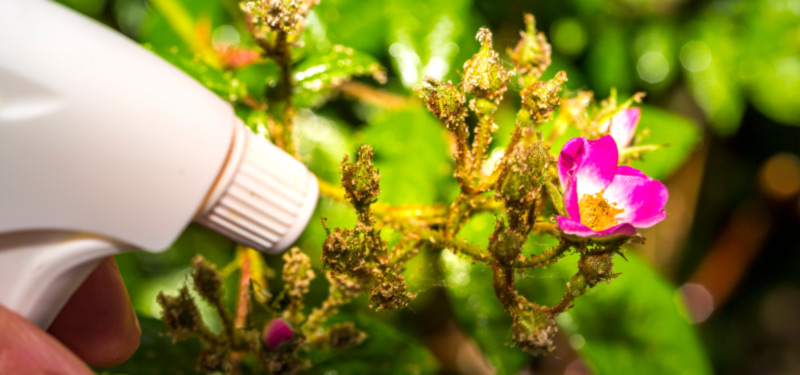From recipes to body care , the benefits are countless!
But what if, in addition to our nails, hair, and appetite, it was also good for plants?
According to several studies, it is possible to use expired extra virgin olive oil for various gardening activities : it contains ingredients such as fatty acids, vitamins E and K, which are extremely important for plant growth.
It is a convenient way to provide the plant with additional nutrients while fighting pests.
But it is necessary to be careful and take some important precautions to avoid incurring inconveniences, for example the oil could attract unwanted insects or parasites to the plants.
Why oil can be good for plants
The oil contains three essential components:
- Fatty acid : Generally present in every plant cell. It plays a significant role in the anatomy or construction of plant cells and in the biological function of plants.
- Vitamin E : Plays a significant role in maintaining healthy plant growth and function. By using extra virgin olive oil on your plants, they will receive a high percentage of vitamin E and be able to easily prepare their own nutrients.
- Vitamin K : Plays an essential role in carrying out photosynthesis
How to use extra virgin olive oil to clean plant leaves
The oil is widely used throughout the world to clean plant scales .
Removing plant scales can be done in two ways:
-
The first is the use of olive oil in the form of a spray (nebulization).
With the help of a sprayer, you can easily wash and clean all the scales present on the plants. -
The second method is to use a solution of olive oil and water.
To prepare the solution, add a little water to the olive oil and mix well. Once the mixture is ready, use a clean cloth to dip it in the solution. Finally, rub the soaked cloth over the plants to remove the scales.
How not to use extra virgin olive oil on plants
The oil is not good for the plant if applied through the soil, but as we have seen it does not harm the plants if applied in the form of a spray.
In fact, extra virgin olive oil can also be used to rub or polish the scales or foliage of plants.
The appearance of the plant's scales or fronds can be beautified by it.
Nurseries sometimes use olive oil to clean the scales of ornamental plants and improve their appearance.
It can also kill many harmful substances or organisms on the surface of plants. However, if used excessively, it can also damage plants, and the same goes for vegetable oil.
Can oil be added to plant soil?
Extra virgin olive oil cannot be used in soil as it could harm the plant rather than provide any benefit.
If it is necessary to add olive oil to the soil for plant improvement, it should be administered to the plant through the soil in a very small amount.
It should be added to the soil with humus flakes or any other decaying matter (which works as fertilizer) so that it can be completely mixed and absorbed into the soil.
This way it will not hinder the movement of water towards the body of the plant.
Pest Control with Olive Oil

Another interesting use of extra virgin olive oil in plant care is related to parasites.
In fact, the oil can easily control the presence of parasites and many other insects that have a harmful effect on plants.
For example, extra virgin olive oil can be useful for preventing and fighting some fungal and bacterial diseases, thanks to its antibacterial and antifungal properties.
But for which plant diseases is it indicated ?
In particular, EVO oil can be used to combat downy mildew , rust and botrytis (Botrytis).
Downy mildew and botrytis in particular are grapevine diseases caused by fungal pathogens that manifest themselves as spots ranging in color from white to gray and jeopardize the success of grape production.
Spraying olive oil on the scales of plants can keep many pests or insects away from the plants.
We recommend preparing a mixture of extra virgin olive oil and water (in equal parts), putting it in a spray bottle and spraying it evenly over the entire plant, including the leaves and flowers.
But be careful: if applied in large quantities through the soil, it can increase pests that are harmful to normal plant growth rather than reduce them.
Pest control can be done if the oil is used as a solution mixed with water.
Oil and water recipes for plant pest control
Here are two DIY recipes to use against parasites:
- Mix a few drops of olive oil (5 ml) and a litre of water to create an organic repellent and spray it around the plants.
- Another quick and easy recipe to repel pests can be prepared by mixing 5 ml of extra virgin olive oil, 3 ml of dish soap, 1 liter of water
In both cases, make sure to mix all the ingredients thoroughly and then apply them to the plant's foliage during the cooler hours of the day, such as early in the morning (7-9 am) and late in the evening (after 6:30 pm).
In a day or two, all the pests will no longer be lurking around the plant.
If you have expired or spoiled oil, follow our advice to avoid throwing it away and reuse it in unexpected ways!
